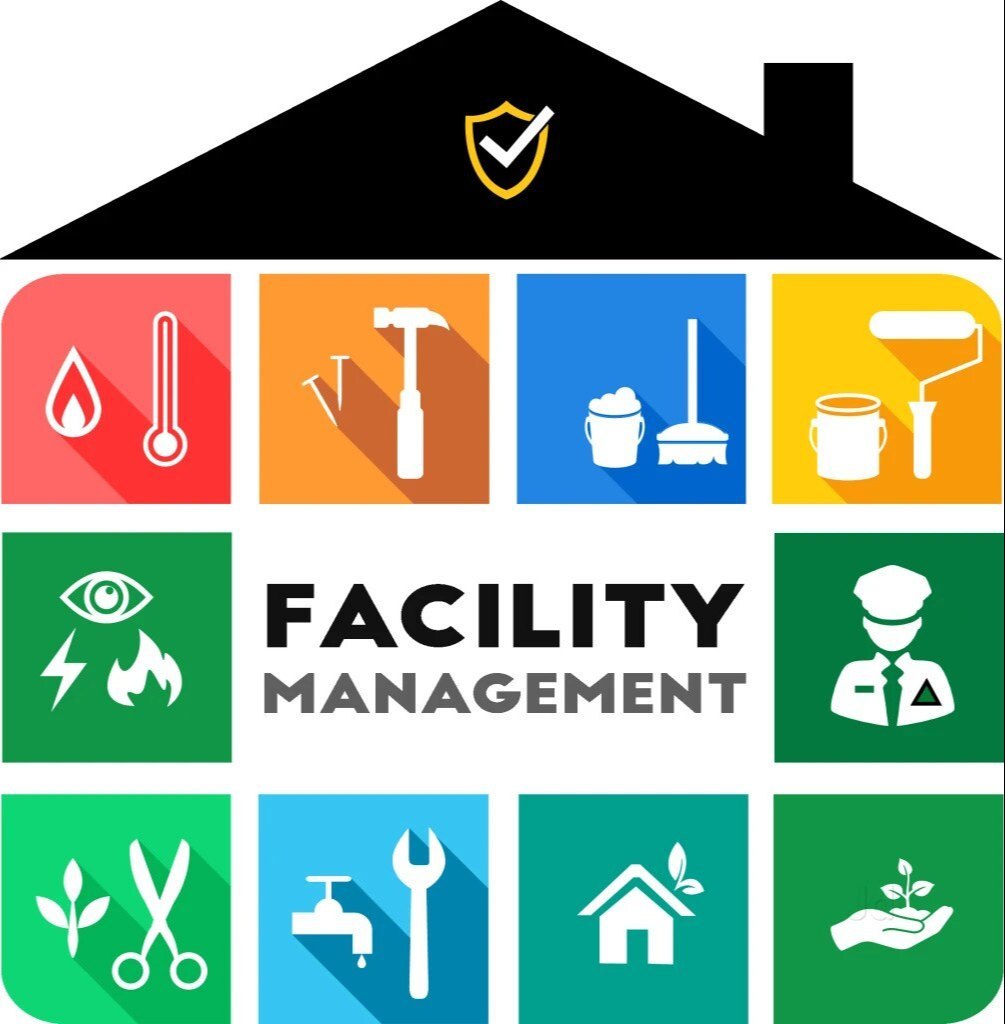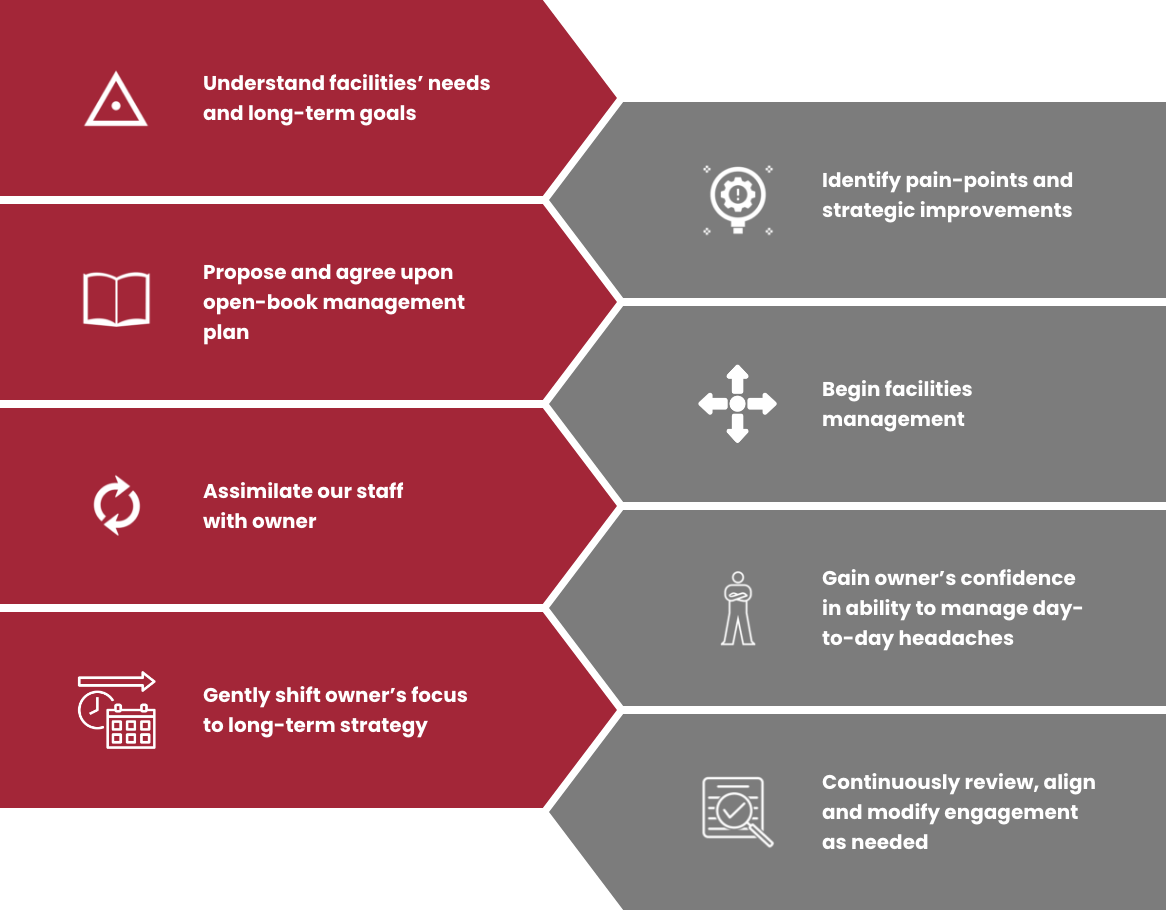Key Trends Shaping the Future of Facility Management in 2024
As we look in advance to 2024, the landscape of facility monitoring is positioned for considerable transformation, driven by numerous key fads. The assimilation of wise building modern technologies and a shift towards data-driven decision-making promise to boost operational efficiency while focusing on sustainability in method.
Smart Building Technologies

Smart building innovations incorporate a wide range of systems, consisting of smart lights, HVAC controls, and protection systems. By integrating these systems, center managers can keep an eye on and readjust criteria in real-time, leading to substantial decreases in power waste and operational expenses. Smart sensors can detect tenancy degrees and adjust lights and temperature as necessary, ensuring that power is just used when needed.
Moreover, these modern technologies assist in enhanced information collection, permitting companies to track use patterns and determine possibilities for additional enhancements. The implementation of wise structure technologies not just adds to sustainability objectives however also develops much healthier job settings that can enhance worker performance and satisfaction.
As we relocate into 2024, the adoption of clever structure modern technologies will likely increase, mirroring a wider shift towards more smart, receptive, and sustainable center monitoring methods.
Data-Driven Choice Making
Significantly, companies are leveraging data-driven decision making to improve center monitoring methods. By taking advantage of data analytics, center supervisors can obtain actionable insights that substantially boost operational effectiveness and resource allotment. The combination of innovative modern technologies, such as IoT sensing units and real-time surveillance systems, allows the collection of large quantities of information on structure efficiency, tenancy rates, and energy usage.
This riches of information enables facility managers to recognize fads, forecast maintenance requirements, and proactively address issues prior to they rise. Predictive analytics can forecast tools failures, decreasing downtime and repair service costs. Additionally, information visualization devices assist in better interaction amongst stakeholders, guaranteeing that notified decisions are made collaboratively.
Moreover, data-driven approaches boost strategic planning by enabling facility supervisors to analyze the effectiveness of present practices and make notified choices pertaining to financial investments in technology or facilities. As companies significantly prioritize operational quality, data-driven decision production is poised to come to be a foundation of effective facility monitoring techniques in 2024 and beyond. Inevitably, the capacity to take advantage of data successfully will encourage companies to develop extra efficient, efficient, and resilient centers.
Sustainability and Green Practices
The focus on data-driven choice making normally aligns with the expanding concentrate on sustainability and eco-friendly techniques within center monitoring. As companies significantly prioritize he has a good point ecological duty, center supervisors are leveraging analytics to enhance source usage, minimize waste, and reduce carbon impacts. This why not look here critical approach allows the assimilation of energy-efficient systems, such as LED illumination, clever heating and cooling controls, and eco-friendly power resources into facility operations.
In addition, the execution of lasting techniques prolongs beyond power intake. Center supervisors are adopting environment-friendly products and promoting recycling campaigns to develop a circular economic situation within their centers. This not only boosts the environmental account of the company however additionally cultivates a culture of sustainability amongst workers.
Compliance with ecological guidelines is another crucial facet driving the fostering of environment-friendly practices. By making use of data analytics, facility supervisors can keep track of compliance metrics and identify areas for renovation, guaranteeing adherence to neighborhood and international sustainability criteria.
Crossbreed Work Models
A significant change towards crossbreed job versions is improving the landscape of facility management in 2024. This standard integrates remote and in-office job, requiring a reevaluation of room application, source appropriation, and worker engagement strategies. Organizations are progressively identifying the value of versatile work spaces that satisfy varied needs and preferences.
Facility managers should my explanation adapt by executing flexible workplace designs that support joint efforts while offering areas for focused work. This includes the assimilation of innovation to promote smooth interaction and partnership amongst remote and in-office employees. Smart building solutions, geared up with sensors and analytics, enable real-time tracking of space usage, enabling companies to optimize their environments efficiently.
In addition, hybrid work versions emphasize the demand for effective facility administration that focuses on staff member experience. This incorporates not just modern technology and area design yet likewise the development of plans that promote a well balanced work-life dynamic. As companies navigate this transition, the duty of center administration comes to be essential in developing a dexterous office that cultivates efficiency and drives organizational success. Essentially, the hybrid job model is changing facility management, encouraging a positive technique to satisfy the advancing needs of the workforce.
Improved Occupant Health
As companies embrace hybrid work versions, a heightened concentrate on owner wellness is ending up being essential to center management techniques. Facility Management. This change acknowledges that a completely satisfied and healthy and balanced workforce straight impacts efficiency and retention prices. Facility managers are currently prioritizing environments that promote mental and physical well-being, incorporating aspects such as all-natural lights, biophilic style, and obtainable wellness resources

Modern technology plays a crucial duty in this advancement. Smart structure systems can check environmental elements and change settings in real-time, ensuring optimal convenience levels - Facility Management. Responses mechanisms, such as tenancy sensors and worker surveys, enable center managers to consistently fine-tune wellness initiatives based on occupant demands.
Verdict
In 2024, the future of center management will be significantly affected by the assimilation of wise structure innovations and data-driven decision-making, cultivating enhanced operational effectiveness. These trends collectively emphasize the evolving landscape of center monitoring in feedback to contemporary obstacles and chances.
Center managers are advertising and adopting environment-friendly products recycling efforts to create a round economy within their centers.A considerable change towards crossbreed job designs is improving the landscape of facility administration in 2024.Moreover, hybrid job versions emphasize the demand for efficient facility monitoring that prioritizes staff member experience.As companies embrace hybrid work models, an enhanced emphasis on passenger wellness is ending up being indispensable to facility administration approaches.In 2024, the future of facility management will be substantially affected by the assimilation of smart structure technologies and data-driven decision-making, fostering improved functional performance.